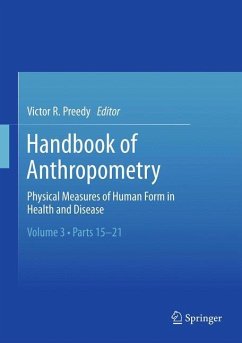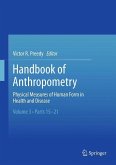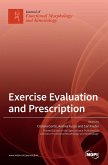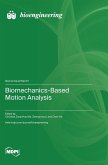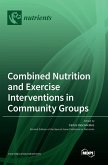Although its underlying concept is a relatively simple one¿the measurement of the human body and its parts¿anthropometry employs a myriad of methods and instruments, and is useful for a variety of purposes, from understanding the impact of disease on individuals to tracking changes in populations over time. The first interdisciplinary reference on the subject, the Handbook of Anthropometry brings this wide-ranging field together: basic theory and highly specialized topics in normal and abnormal anthropometry in terms of health, disease prevention, and intervention. Over 140 self-contained chapters cover up-to-date indices, the latest studies on computerized methods, shape-capturing systems, and bioelectrical impedance, data concerning single tissues and whole-body variables, and reports from different areas of the world. Chapters feature helpful charts and illustrations, cross-references to related chapters are included, and key points are presented in bullet form for ease of comprehension. Together, the Handbook¿s thirteen sections entail all major aspects of anthropometrical practice and research, including: Tools and techniques. Developmental stages, from fetus to elder. Genetic diseases, metabolic diseases, and cancer. Exercise and nutrition. Ethnic, cultural, and geographic populations. Special conditions and circumstances. The Handbook of Anthropometry is an invaluable addition to the reference libraries of a broad spectrum of health professionals, among them health scientists, physicians, physiologists, nutritionists, dieticians, nurses, public health researchers, epidemiologists, exercise physiologists, and physical therapists. It is also useful to college-level students and faculty in the health disciplines, as well as to policymakers and ergonomists.
Hinweis: Dieser Artikel kann nur an eine deutsche Lieferadresse ausgeliefert werden.
Hinweis: Dieser Artikel kann nur an eine deutsche Lieferadresse ausgeliefert werden.

